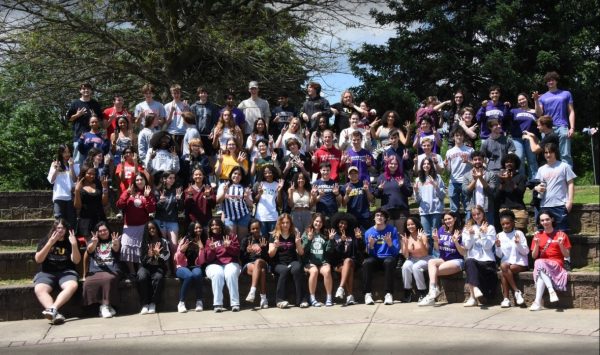The Wrong Way to Deal With College Rejection

Group of six students outside sitting on steps
I want to start this article off with a bit of a disclaimer. This article is not being written to serve as the premier source of information regarding Affirmative Action. As the topic is so large, there are many other resources out there you can use to further your understanding and/or develop your own opinions about the policy. Here, I am simply sharing my point of view.
A story went viral a month or so ago about a high school student who was admitted to Stanford University. That is certainly no small feat. Stanford admitted less than 5% of applicants last year. This student’s acceptance to such a highly selective university is not why his story was shared thousands of time on the internet. It was one of his essays. Stanford’s application asked “What’s important to you, and why?” For such a general question, a wide array of responses might be expected. Ziad Ahmed, the student in question, responded by writing “#BlackLivesMatter” 78 times. The responses I saw to his tweet are what prompted me to write this article.
A lot of people felt like Ahmed’s response was unsatisfactory for a student admitted to Stanford. While that is a reasonable feeling, it was presented in a way much less reasonable than its origin. As they searched and searched for a way to comprehend how a student could get into such a prestigious school, they only found one reason: his skin color. Ziad Ahmed is a student of color, so people seemed to think it was because of the diversity he would bring to the school that he was “given a pass” for his subpar essay response. While I understand the impulse of explaining his acceptance in this way, that line of thinking can be extremely harmful.
In its entirety, using a student’s race to make sense of why you got rejected is racially insensitive. Do you realize you’re minimizing all of that student’s hard work over the years? Do you realize it comes from a racist mindset for you to assume that your application was “better” than that of the student who “stole your spot?” Also, why is it that people buy into this idea that colleges are being infiltrated by students of color at alarming rates? Students of color still do not represent the majority at most schools.
When students of color walk onto college campuses, their problems are larger than the guilt projected onto them for gaining acceptance. Recently, the first black student body president at American University was the target of a hate crime in which bananas were attached to nooses and hung in several spots on campus. Should this act be justified because she “infiltrated” the campus and didn’t belong there in the first place? I find that difficult to believe.
College admissions is a game in and of itself. When a school is already only accepting less than 10% of applicants, it’s literally impossible to pinpoint a reason why one student got in and why another didn’t. More schools are practicing “holistic admissions” which look at applicants as more than just a sum of their test scores and GPA. This is a great way of ensuring that colleges are admitting not only excellent students but well rounded individuals.
Diversity is important on campus. I don’t think it’s an inherent crime if schools deliberately look to diversify their student body. I know in my time at Sandy Spring the difference of perspectives and experiences has enhanced my learning of various subjects. That’s what I think colleges are trying to do when they’re selecting students to admit: enhance learning experiences, not perpetuate some liberal agenda.
To put it simply: Don’t blame students of color for your rejection letter. It’s that simple. So much goes into a college acceptance that it’s really inappropriate to blame it on the color of someone’s skin. If you’re looking for someone or something to blame, it should be college admissions as a whole.
Remember Ziad Ahmed? The founder of “redefy” which is an international organization committed to defying stereotypes and embracing acceptance? The CVO of a youth consulting firm? A featured member of MTV’s list of 9 teens changing the world and Business Insider’s Top 15 Young Prodigies? Maybe you remember all of the backlash he received for his acceptance to Stanford. He ultimately decided to attend Yale University in the fall. I guess Stanford wasn’t the right fit for him.










Taylor • Jun 4, 2017 at 10:40 am
I agree completely with everything you are saying in this article,colleges look at more than just the color of your skin when making the decision about whether your the right fit or not . I think it is unexceptale for another student to have the audacity to blame their rejection on someone else because of their color . Ziad Ahmed showed them up by not only being excepted into Stanford but also into Yale.
Ayiana Croft • May 24, 2017 at 9:05 am
I agree with what you are saying because it is extremely important to not blame any other person, regardless of color, for a collage rejecting you. I can’t believe that people are actually blaming people of color for why they did not get into a collage. It makes me mad at society because the reason why you didn’t get accepted into a collage is because they didn’t think you were the right fit for them. You can’t just blame someone of another color than you because you are angry you didn’t get accepted.